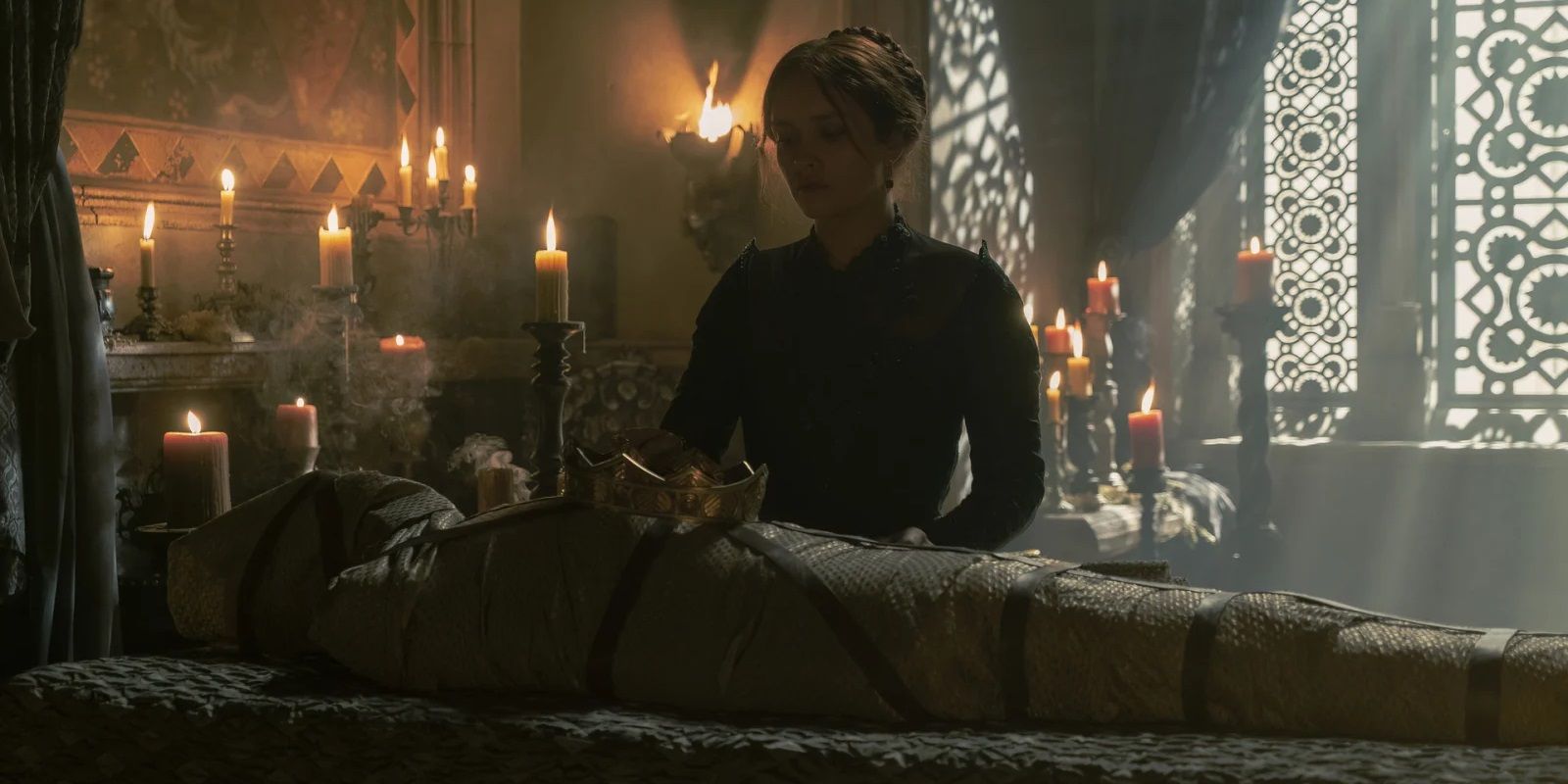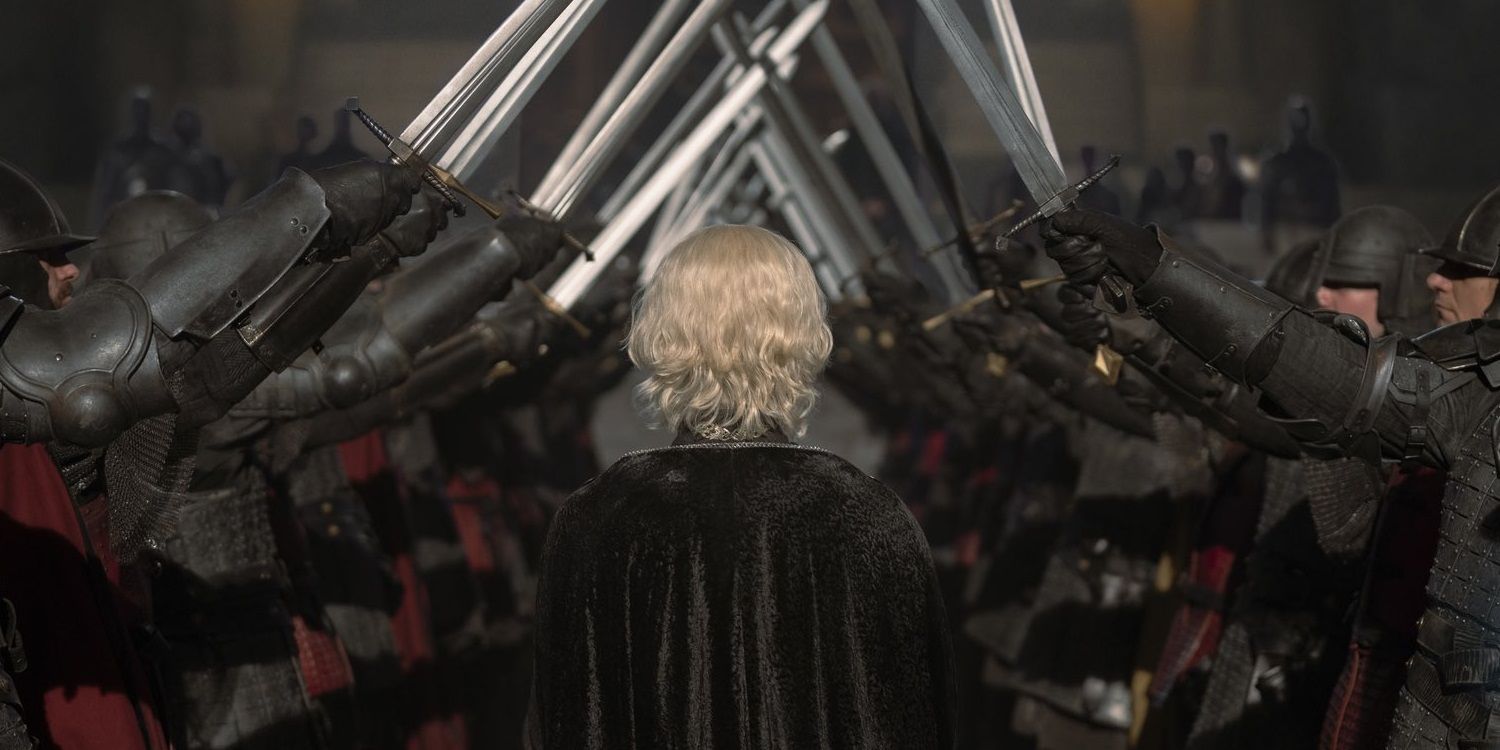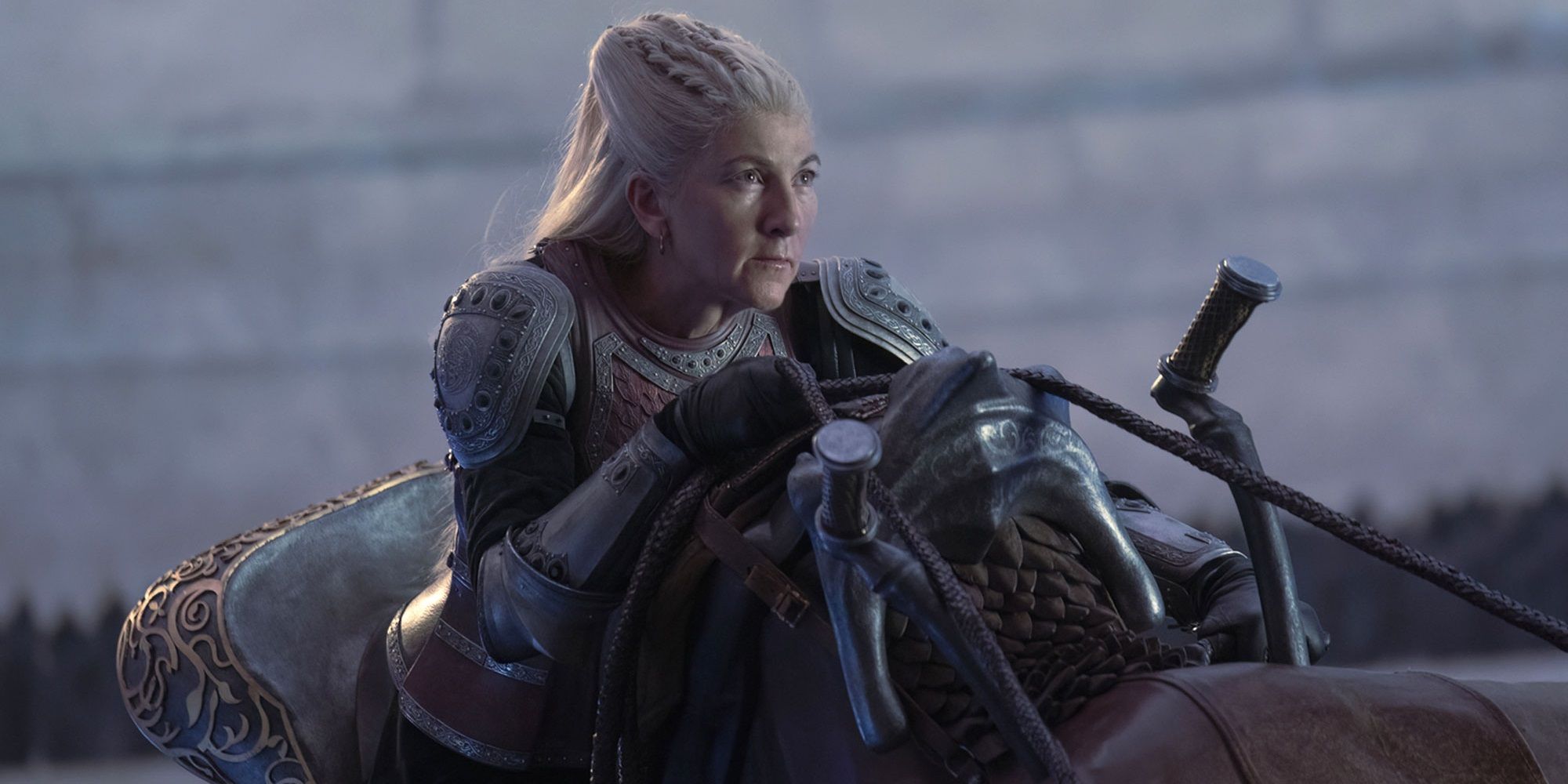Warning: This article contains spoilers for House of the Dragon.
The penultimate episode of House of the Dragon’s first season, “The Green Council,” has been praised as the show’s most thrilling installment to date. The spin-off’s own game of thrones is well underway as Alicent has taken control, Ser Harrold has resigned in protest, Rhaenyra and Daemon have been sentenced to exile, Aegon has been coronated, and Rhaenys has crashed the party with her dragon just to send a message. By picking up where the previous episode left off, “The Green Council” has highlighted what the time jumps – the series’ most notorious storytelling trick – were taking away from the flow of the narrative.
The time jumps were a necessary evil to get through the dense backstory and mythology needed to set up the “Dance of the Dragons” arc. But skipping years at a time has resulted in important plot points – like Viserys’ marriage to Alicent, Daemon’s marriage to Laena, most of the Stepstones conflict, and the births of about a dozen major players – taking place off-screen. And, even worse than that, the time jumps have affected the pacing of the storytelling. Individual episodes are patiently paced, with episodes dedicated to Rhaenyra frolicking in the forest to show Criston falling for her and the meandering hunt that serves to show Viserys as a weak leader, while the multi-year leaps make the overall narrative arcs race forward at a mile a minute.
“The Green Council” finally broke the mold. The ninth episode of House of the Dragon’s first-season run doesn’t pick up a few years down the line; it picks up right where the eighth episode left off. The writers take the time to sit with last week’s cliffhanger and dig into the immediate aftermath. Last week, “The Lord of the Tides” ended with Viserys finally succumbing to his mysterious illness and dying peacefully in his bedchamber. Right before he passed away, Viserys was mumbling about Aegon the Conqueror’s dream. Overhearing this, Alicent mistook it for a wish that he should be succeeded by his son Aegon. “The Green Council” opens with Alicent passing on her misinterpretation to the Small Council and trying to get Viserys’ official decision overruled by the unofficial one his widow thinks she heard from his final breath.
Episodes of a TV show are like chapters of a novel. Great standalone episodes don’t always make up a great TV series. A big part of the success of a serialized TV show is the momentum from each episode to the next. After a young boy on a dirt bike is shot dead by Todd in the shocking final moments of Breaking Bad’s celebrated “Dead Freight” episode, the somber opening scene of the next episode, “Buyout,” sees Walt, Mike, and an unnervingly unaffected Todd disposing of the bike and eventually the corpse, followed by a tense Treasure of the Sierra Madre-style debate about whether or not to spare Todd’s life. The cliffhanger of “Dead Freight” would’ve been less effective if the following episode skipped forward a few years and Todd’s killing of the boy on the dirt bike was a distant memory. The opening of “Buyout” explored the ramifications of that shocking cliffhanger from the outset.
Even House of the Dragon’s flagship series, Game of Thrones, followed up on its cliffhangers directly. After Joffrey is killed in season 4’s “The Lion and the Rose,” Cersei accuses Tyrion of the murder and has him arrested. The next episode, “Breaker of Chains,” instantly picks up with Tyrion preparing to face trial for murder charges. Based on the massive amount of story ground covered in House of the Dragon – and, specifically, the ground covered in between episodes – in a similar situation, the writers would’ve jumped right ahead from Tyrion being arrested for murder in King’s Landing to his season 5 adventures with Daenerys in Essos.
Skipping years ahead past a handful of crucial plot points always made each House of the Dragon episode’s cliffhanger ending feel less consequential. At the end of one episode, Criston brutally murdered Laenor’s lover Joffrey at his wedding to Rhaenyra; at the beginning of the next one, 10 years later, everything has worked out for Criston as he serves Alicent, teaches her sons to fight, and is a decade on from any unpleasantness that may have resulted from his impromptu murder. At the end of another episode, Daemon and Rhaenyra run off to get married against their family’s wishes; at the beginning of the next one, they return to King’s Landing after six years of marriage to defend Lucerys from claims of illegitimacy.
By picking up right where the last episode left off, “The Green Council” takes the opportunity to explore the consequences of Alicent misinterpreting Viserys’ last command, ultimately leading to the beginning of the Dance of the Dragons. Now that the stage is set for the game of thrones to begin, hopefully the show’s storytelling will focus less on padding out Targaryen history with time jumps and focus more on building momentum.



